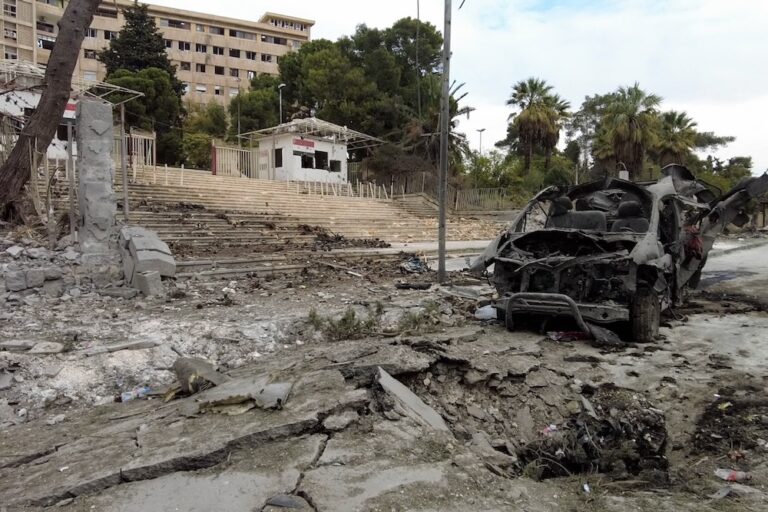(RSF/IFEX) – RSF hails the 12 September 2007 release of writer and cyber-dissident Habib Saleh after 27 months in detention. He was freed by a military court in the city of Homs in response to a petition from his lawyer, Ibrahim Melki, under a law that allows prisoners to be released on completing three-quarters of […]
(RSF/IFEX) – RSF hails the 12 September 2007 release of writer and cyber-dissident Habib Saleh after 27 months in detention. He was freed by a military court in the city of Homs in response to a petition from his lawyer, Ibrahim Melki, under a law that allows prisoners to be released on completing three-quarters of their sentence.
“We are extremely happy about Saleh’s release,” the press freedom organisation said. “He was convicted in an unfair trial by court martial and should never have been imprisoned. The Baath Party must now stop the harassment of dissident writers and release Michel Kilo and Muhened Abdulrahman, who are still in prison.”
Arrested on 29 May 2005 in his office in Tartus, 130 km north of Damascus, Saleh was convicted by a military court in Homs of “spreading mendacious information” in open letters to the Baath Party criticising the regime, which he posted on websites such as http://www.elaph.com . His lawyer blamed his conviction above all on a scathing article about the 1967 Arab-Israeli war.
A regular contributor to the privately-owned Lebanese daily “An-Nahar”, Saleh was previously arrested along with nine other pro-democracy activists in 2001, when he headed the Tartus Forum for National Democratic Dialogue. Their arrests marked the end of a limited political opening that began when Bashar al-Assad succeeded his father as president.
Charged with trying to change the constitution by illegal means, inciting sectarian strife and sedition, spreading mendacious information and trying to discredit the government, he was sentenced to three years in prison in May 2002.
Syria has become one of the Internet’s worst black holes since Bashar al-Assad became president. Access to opposition online publications is systematically blocked, while dissidents and independent journalists are hounded when they post articles on the Internet.


